#American Philosophical Society
Text
William Willis
William Willis was born in 1921 in Waco, Texas. His parents were affluent, college-educated African Americans. His father served first as an educator and then started a construction company. The family moved to Dallas when Willis was two "partly in response to an ultimatum from the Waco Klu Klux Klan" (Zumwalt 1). His father died a few years later and he was raised by his mother. Although he attended segregated schools, his family also traveled widely -- a habit he would keep up throughout his life.

William Willis from his Howard yearbook, via AmPhilSoc (as are all other images in this page)
Willis was a quiet, bookish child and went on to Howard University, where he graduate cum laude in 1942. It was there that he developed an interest in the sociology and history of the Black experience int he United States. Once out of school, he volunteered to join the Coast Guard and spent the war stationed in Boston. Afterwards, he decided to attend graduate school in anthropology at Columbia because he "assumed that this discipline was the vanguard in the attack against racist thought" (Zumwalt 2). He was thus in the same class of students as Eric Wolf, Marvin Harris, Morton Fried, Sydney Mintz, and Robert Murphy. He became interested in the history of Black and Indian relations, as wrote a dissertation based on library research on "colonial conflict and the Cherokee Indians, 1710-1760" and recieved his Ph.D. in 1955.
During his time at Columbia he married his life partner Georgine "Gene" Upshur, who came from a prominent African American family in Philadelphia. Her father was a Republican congressman in Pennsylvania's lower house and also, as it happened, the mortician who buried Bessie Smith, the great blues singer. She earned a BA in sociology and wanted to go on to study social work, but he father agreed to support her studies only if she also went to mortician school so that she would have a steady source of financial support. "People will always need an undertaker" he told her (Zumwalt 5). She was doing her masters in social work when she met Willis.
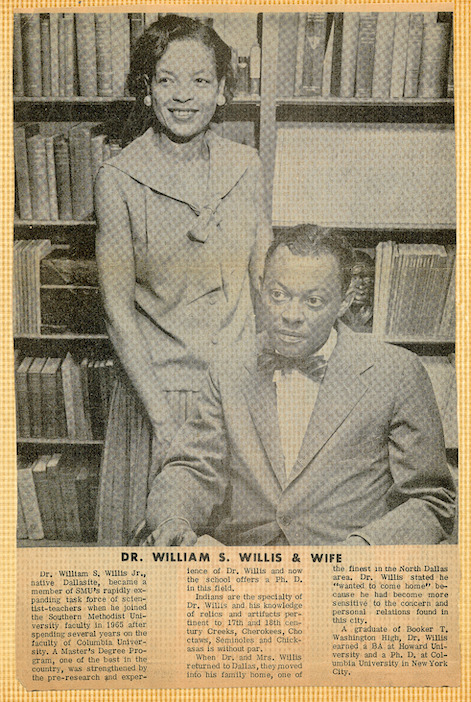
From 1955 to 1964 Willis tried unsuccessfully to pursue a career in anthropology. He applied to the Ford Foundation for a research grant and was turned down. He applied for teaching positions but was told by Duncan Strong (the department chair at Columbia) that no one would hire a black person. He and his wife lived in New York for nearly a decade and Willis published work while teaching part-time as a lecturer at Columbia and City College. In 1963 Willis's mother died of a heart attack and Willis and Gene decided to move back to Dallas to live in the family home.
Willis's luck turned on his return to Dallas. It was 1964, the high-water mark of the civil rights movement, and Southern Methodist University was looking to integrate its faculty. In 1965 he was hired to a position in anthropology. He was a tremendous success at the new institution, drawing large classes of students and helping to establish an MA and Ph.D. program in the department. He earned tenure and became a full professor. His wife became active in several local organizations -- at last, the Willis's were flourishing.
In the late 1960s, life again became difficult for Willis. His department chair, a racist, began harassing him -- this included actions like changing the locks on the office to his door and not giving him the key. Administrators above him supported his chair's behavior. Radical black politics came to campus, and militant student activists began making increasingly large demands on the administration. Willis -- a quite, reserved man who alway wore a bowtie in public -- found himself deeply sympathetic to the activists and became radicalized himself. As the only black professor on campus, he became a key player negotiating their relationship to the administration. It was in this context that he wrote his piece "Skeletons in the Anthropological Closet". He considered alternate titles for the essay, including "anthropologist as vulture" and "anthropologist as exploiter".

Willis at SMU, via APS
The Willises found it difficult to bear the brunt of the constant harassment they faced at SMU. Their health began to break down. Willis experienced constant pain in his abdomen and was afraid it was cancer -- in fact, it was stress. Gene began fainting in public. Willis decided to take a leave of absence in 1971 to recover. The administration then altered his request to make it a 'terminal leave of absence', making it sound as if he had resigned his position! Willis fought back against this attempt to remove him, but soon realized that if he stayed at SMU he would spend his entire life fighting the administration for his rights. When his leave of absence was over, he resigned from SMU. He had been there less than a decade.
Willis and Gene moved to Philadelphia, Gene's home town. They moved in with her mother and Gene's mortician experience ended up proving valuable, and the family business helped support both her and Willis. One of the upsides of the move was that the American Philosophical Society was based in Philly. Willis began his next and (as it turns out) final project there, combing through the massive archive of the Franz Boas paper. He became a fixture in the reading rooms of the society, well-known to the librarians and archivists who worked there. His initial plan was to write about the sort shrift Boas and his colleagues gave to Black Americans, but the more time he spent reading Boas, the more ambivalent he became. He came to see Boas as both an anti-racist activist and someone who at times seemed to harbor racist views of Black people.

Willis in the PBS Special "Shackles of Tradition" about Franz Boas. The entire documentary is on YouTube
Wilis began writing a book on the history of American anthropology's study of African Americans. Alas, this study was never to be finished. On 8 August 1983 Willis left the reading room, went home, and died of a massive heart attack. He was 62 years old. His papers are now in the APS library and his wife Gene has established a fund to support the study of race (APS Willis feature).
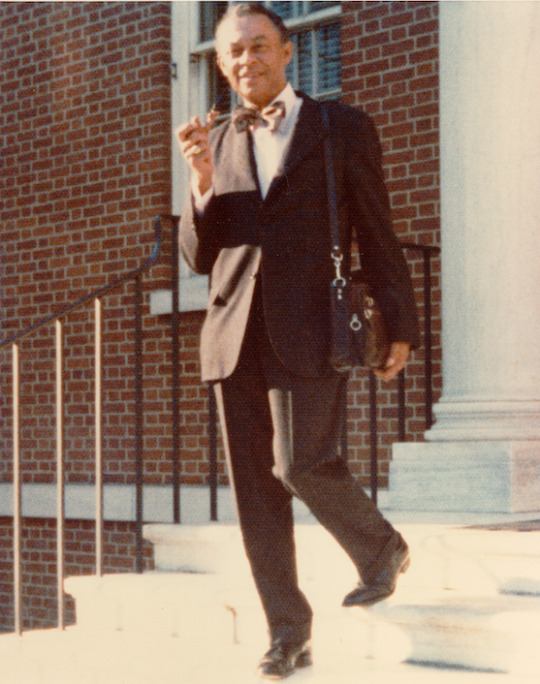
Via APS
Willis had little lasting influence on the discipline of anthropology. Although his "Skeletons" essay is now more widely taught, he did not train graduate students who could keep his memory alive. The first chapter of his book on Boas was published posthumously, but the rest of the work was already created. Today, Willis is remembered as a pioneer of African American anthropology but, to be honest, his biography shows us both the story of a model scholar and the tragedy of race in America.
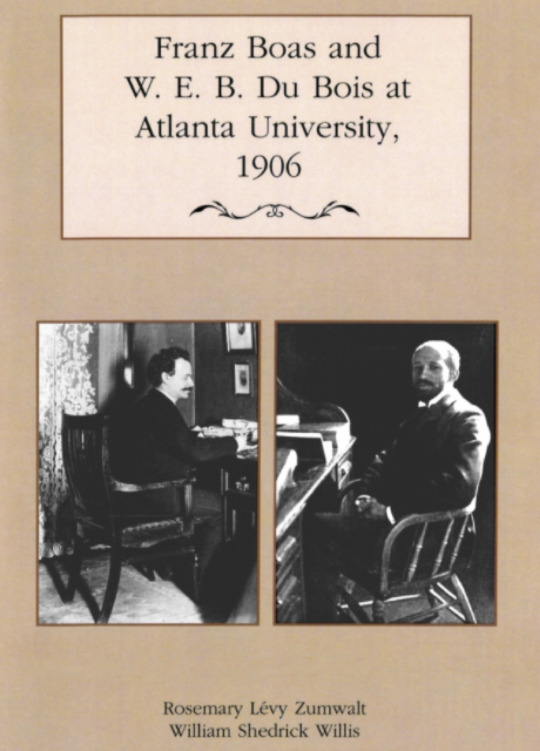
Willis's final volume is available on JSTOR.
52 notes
·
View notes
Text
Unlocked Book of the Month: History, Manners, and Customs of the Indian Nations Who Once Inhabited Pennsylvania and the Neighbouring States
Each month we’re highlighting a book available through PSU Press Unlocked, an open access initiative featuring scholarly digital books and journals in the humanities and social sciences.
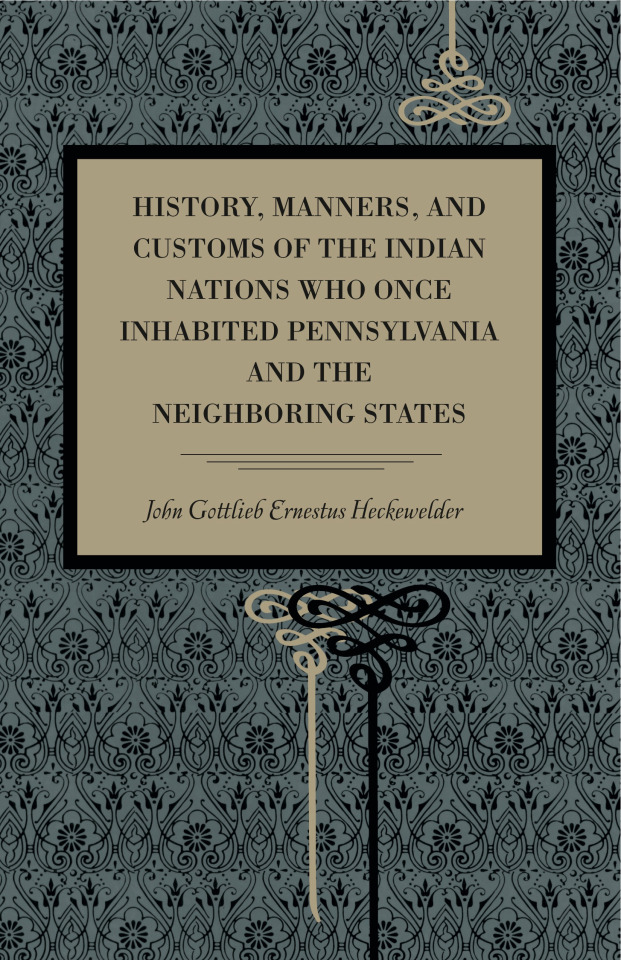
About our February pick:
First published by the Historical Society of Pennsylvania in 1818, History, Manners, and Customs of the Indian Nations provides an account of the Lenni Lenape and other tribes in the mid-Atlantic region, looking at their history and relations with other tribes and settlers, as well as their spiritual beliefs, government and politics, education, language, social institutions, dress, food, and other customs. The text, written by the Reverend John Heckewelder, a Moravian missionary based in Ohio and Bethlehem, Pennsylvania, includes the author’s observations, anecdotes, and advice, preserving not only his knowledge about the Indian nations in the eighteenth century but also his perspective, as a missionary and settler, on Native Americans and the often-fraught relationships between the tribes and European settlers. This version of the text, published in 1876, contains an introduction and notes by the Reverend William C. Reichel as well as a glossary of Lenape words and phrases and letters between the author and the then-president of the American Philosophical Society concerning the study of the Indian nations and their languages.
Read more & access the book here: https://www.psupress.org/books/titles/978-0-271-06701-8.html
See the full list of Unlocked titles here: https://www.psupress.org/unlocked/unlocked_gallery.html
#Pennsylvania#Pennsylvania History#PA History#Lenni Lenape#Indian#Native American#Mid-Atlantic#Atlantic#Moravian#John Heckewelder#Ohio#Eighteenth Century#Nineteenth Century#Lenape#American Philosophical Society#PSU Press#PSU Press Unlocked
2 notes
·
View notes
Text
Maria Mitchell In Her Own Words
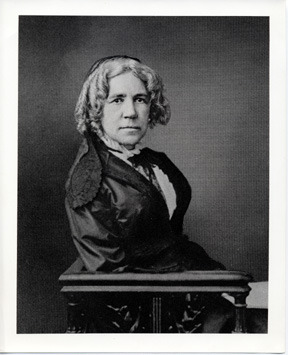
Nov. 24, 1854. Yesterday James Freeman Clarke the biographer of Margaret Fuller came into the Atheneum. It was plain that he came to see me and not the Institution. I was a good deal embarrassed and made such as effort to appear as if I wasn’t, that I was almost ready to burst into a laugh at my own ridiculousness.
Maria Mitchell would find that hundreds of people would seek her out during her worktime at the Atheneum just to lay eyes on her and to be able to tell people back home that they had indeed seen “the lady astronomer” while on Nantucket. She did find it a bit tiring but her nervousness at meeting Freeman Clarke and her attempt to seem more important I find humorous. Maria never quite got over people fawning over here nor her fame. Very Maria. But she and Freeman Clarke would run in the same circle – from Julia Ward Howe to the American Philosophical Society – in which both were members.
JNLF
#Nantucket#Maria Mitchell#Nantucket Maria Mitchell Association#Margaret Fuller#James Freeman Clarke#Nantucket Atheneum#Julia Ward Howe#American Philosophical Society
0 notes
Note
One of the reasons for the "Left" becoming more and more like a cheerleading squad for exactly the kind of things Leftists are supposed to hate is because so much of this new coalition of young people are coming from conservative backgrounds, but not doing any real work to deradicalize themselves.
They grow up with these Puritanical ideas of sin and justice, crime and punishment, and instead of unlearning any of this they just switch the targets of their disdain. It's switching teams for them, not learning that they don't have to play the game. Most of them are soft conservatives who just want free healthcare.
And these Leftoid chud debate pervert streamers like Hasanabi are a big contributing factor to this, not the only factor, but a prominent one. He definitely puts this veneer of artificiality and commodification over the Left. American society is under a lot of stress right now, culturally and economically. Instead of the Left organically building coalitions it's mostly unorganized college kids reading Al Jazeera and Russian and Chinese propaganda and running as fast as they can away from privilege and having a toddler understanding of class consciousness. It's so pathetic and basic and it will not save us.
You cannot save a society that you don't think is worth saving. They're just practicing radical disengagement and some kind of edgy nihilism. They purport to hate America and the West and want to burn it all down but they know that will never happen which is why they're so comfortable with the cognitive dissonance. It's why they don't vote, and why organizing and demonstrating is like teeth pulling for them. Either black activists have to do all the leg work for them, or the protests have to be about tearing something down, not advocating for any positive change, right now that's Israel. Soon it will be something else.
Unironically, the pussy hat resist lib wine moms did way more with their women's marches than any of these wannabe philosopher college kids are doing with anything. Like I know for a fact a "Leftist" would read a post like that and be like "L + ratio libshit, imagine supporting the neoliberal fascist colonialist concept of due process?" like we're so beyond the pale at this point. When fascism takes over, I'm sure they'll think they're fighting back, but if the fascists learn to coopt enough phrases about climate and Palestine and healthcare, will they even notice the fascists taking over?
I've got a few friends who were raised hardcore fundie Christian, "gays will burn" creation and rapture types. They went to normal public colleges and wound up becoming very left-wing, all the left memes and slogans you can think of, fastidious in their distinctions between and protections of every conceivable marginalized group (which none of them are, on any axis). And.... you can't disagree with them about anything. Can't point out that a source is questionable or that a slogan is psychologically backfiring and producing skepticism or mockery instead of benefits. They will not hear of it, because they are still fundies. They did a binary flip from one team to another but never moderated their tactics or temperament.
347 notes
·
View notes
Note
i think you do a really impressive job balancing comprehensive/concise while referencing a lot of complex frameworks(contexts? schools of thought? lol idk what to call that. big brain ideas) but if you have any readings specifically on the institution of psychiatry topic that you would recommend/think are relevant, I'd be interested. it's absolutely not a conversation that's being had enough and I want to be able to articulate myself around it
yes i have readings >:)
first of all, the anti-psychiatry bibliography and resource guide is a great place to start getting oriented in this literature. it's split by sub-topic, and there are paragraphs interspersed throughout that give summaries of major thinkers' positions and short intros to key texts.
it's from 1979, though, so here are some recs from the last 4 decades:
overview critiques
mind fixers: psychiatry's troubled search for the biology of mental illness, by anne harrington
psychiatric hegemony: a marxist theory of mental illness, by bruce m z cohen
desperate remedies: psychiatry's turbulent quest to cure mental illness, by andrew scull
psychiatry and its discontents, by andrew scull
madness is civilization: when the diagnosis was social, 1948–1980, by michael e staub
contesting psychiatry: social movements in mental health, by nick crossley
the dsm & pharmacy
dsm: a history of psychiatry's bible, by allan v horwitz
the dsm-5 in perspective: philosophical reflections on the psychiatric babel, by steeves demazeux & patrick singy
pharmageddon, by david healy
pillaged: psychiatric medications and suicide risk, by ronald w maris
the making of dsm-iii: a diagnostic manual's conquest of american psychiatry, by hannah s decker
the myth of the chemical cure: a critique of psychiatric drug treatment, by joanna moncrieff
the book of woe: the dsm and the unmaking of psychiatry, by gary greenberg
prozac on the couch: prescribing gender in the era of wonder drugs, by jonathan metzl
the creation of psychopharmacology, by david healy
the bitterest pills: the troubling story of antipsychotic drugs, by joanna moncrieff
psychiatry & race
the protest psychosis: how schizophrenia became a black disease, by jonathan metzl
administrations of lunacy: racism and the haunting of american psychiatry at the milledgeville asylum, by mab segrest
the peculiar institution and the making of modern psychiatry, 1840–1880, by wendy gonaver
what's wrong with the poor? psychiatry, race, and the war on poverty, by mical raz
national and cross-national contexts
mad by the millions: mental disorders and the early years of the world health organization, by harry yi-jui wu
psychiatry and empire, by sloan mahone & megan vaughan
ʿaṣfūriyyeh: a history of madness, modernity, and war in the middle east, by joelle m abi-rached
surfacing up: psychiatry and social order in colonial zimbabwe, 1908–1968, by lynette jackson
the british anti-psychiatrists: from institutional psychiatry to the counter-culture, 1960–1971, by oisín wall
crime, madness, and politics in modern france: the medical concept of national decline, by robert a nye
reasoning against madness: psychiatry and the state in rio de janeiro, 1830–1944, by manuella meyer
colonial madness: psychiatry in french north africa, by richard keller
madhouse: psychiatry and politics in cuban history, by jennifer lynn lambe
depression in japan: psychiatric cures for a society in distress, by junko kitanaka
inheriting madness: professionalization and psychiatric knowledge in 19th century france, by ian r dowbiggin
mad in america: bad science, bad medicine, and the enduring mistreatment of the mentally ill, by robert whitaker
#sorry this is SO MANY things lmao#i wld recommend starting with harrington or scull as an intro and then maybe look at one of the more topic-specific texts#depending on what interests you specifically#book recs#psychiatry
569 notes
·
View notes
Note
sixth shelf, thinnest book
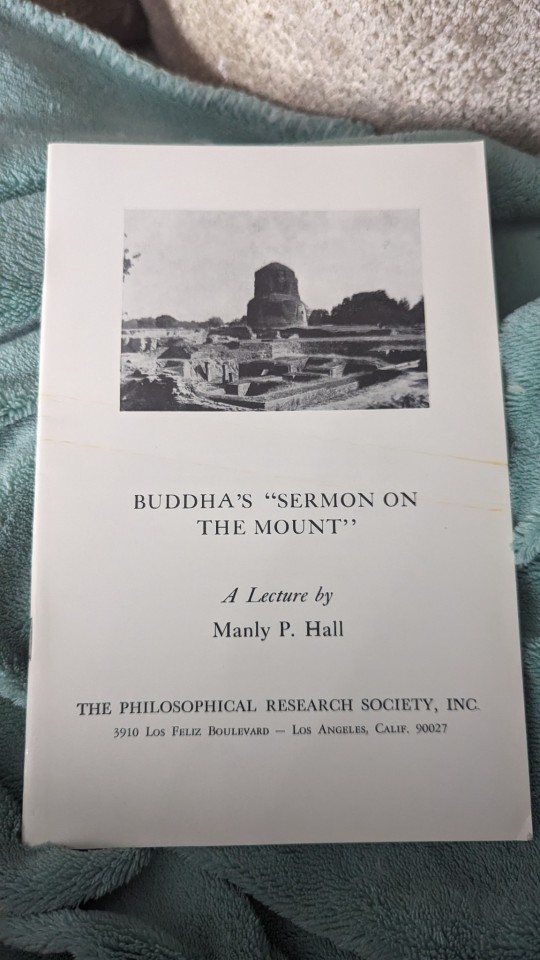
A pamphlet from the Philosophical Research Society. This is a recorded Manly P. Hall lecture called "The Buddha's Sermon on the Mount" I found this particular copy on the sidewalk outside of the building.
The text is pure Manly Hall. Printed in 1954, It draws parallels between Christ's Sermon On The Mount, and Gautama Buddhas first sermon after reaching enlightenment at Bodh Gaya.
It is typical of what you might expect from the era. Vague hints towards a fundamental unity of Buddhism and Christianity, notions towards a perennial religious truth, a frankly surface-level analysis Buddhist (and honestly Christian) theology.
What makes the pamphlet fun is Hall's sheer, unbridled enthusiasm. At the time he was writing, Buddhism was something few Americans knew much of anything about. Hall is just so damn excited to tell us about Sangha, and the five first disciples. It's a bit infectious.
217 notes
·
View notes
Text
I'm not delving into politics but after a weird morning reading people's political reactions I want to briefly explain something a lot of people on tumblr don't understand. It's just a personal note I will likely delete.
The tropes politicians and comedians like to use of "There's money for war but no money for your college loans" is concise and useful because it points out a broadly philosophical thing about our society and what we spend money on, but it is not actually descriptive regarding the mechanics of the government.
Your student loan or food money is not going somewhere else. The problem is greed and living in an oligarchy. If Santa clause gave the government 300 billion dollars tomorrow they would not pay for your school loans or gender reassignment surgery or give more money to the poor or create affordable housing.
The point is that conservatives, of any party, believe their profits are more important than you having an easy way to live. They do not want you to have these things, they don't think your needs are important, they would rather pocket the money but perhaps more importantly, the minority rule we are experiencing can only win elected office on ideological fear. They do not want the disadvantaged empowered. They are selling the idea of denying anything to women, minorities or the poor based on the a success they have had disenfranchising those people that older white people fear will come to power. They cravenly play on a deep fear Americans have that someone will have something they don't. That they will get an unfair advantage somehow if they are helped in any way, even though these same people have been given countless advantages in life.
The reason I feel basic understanding of the government is important is because even well intentioned people here I agree with lack this understanding. A lot of tumblr 2020 was lacking any nuance about how politics works. "So and so introduces a bill to end homelessness" is typical and great idea but largely performative as Bernie Sanders or anyone in government has a pretty good idea what has a chance of being funded or made law. The razor thin Senate majority means there's not a "liberal senate" and American liberals are really pretty conservative by most standards. It's the same misconception with things like "Trump sues the Biden administration" . People file lawsuits everyday, they are largely meaningless but it looks good on paper.
Everything in this country could improved a LOT if everyone voting age just voted. You could have shelter for the homeless and money for college and better benefits for the mentally ill and cheaper housing but the idea that the government has decided to pay for war and not pay for something good is inaccurate. There would never pay for something good if they had all the money in the world.
It's not the money, it's their values.
169 notes
·
View notes
Text
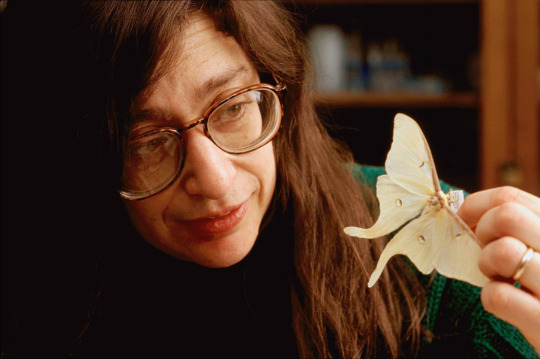

Notable Women in Zoology: Professor May Roberta Berenbaum
An American entomologist with a research focus on chemical communication between herbivorous insects and their host plants, as well as the implications of these interactions on the organisation of communities + the evolution of species.
She is also:
A member of the National Academy of Sciences (and editor-in-chief of its journal, Proceedings of the National Academy of Sciences)
Previously served as the editor of Annual Review of Entomology (1997-2018)
A member of the American Philosophical Society
A fellow of the American Academy of Arts and Sciences
Serves as the head of the Department of Entomology at the University of Illinois
Holds the Maybelle Leland Swanlund Endowed Chair in Entomology (highest title a professor can hold at the University of Illinois)
Awarded the National Medal of Science in 2014
Chaired the Committee on the Future of Pesticides in U.S. Agriculture (2000) and the Committee on the Status of Pollinators in North America (2007)
Has written numerous magazine articles + books about insects for the general public
Organiser of the Insect Fear Film Festival at the University of Illinois
Dr. Bambi Berenbaum, famous entomologist and love interest of Agent Mulder in The X-Files, is named after her
74 notes
·
View notes
Text
"Those who do not learn history are doomed to repeat it," and those who don't question history's methods, standards, and values are doomed to never learn it. Here are five free historiography essays.
Venus in Two Acts: A scholar of African American history grapples with the problem of writing about a slave when "no one recorded the things she said, or observed that she refused to say anything at all".
Introduction to Agnotology: A historian and philosopher who has spent his life fighting corporate disinformation campaigns writes “about the conscious, unconscious, and structural production of ignorance”.
Introduction to Landmark Thucydides: A contemporary historian evaluates the research methods, and reliability, of a “historian” born around 460 BC. The full introduction is available in the Amazon preview.
Can the Mosquito Speak?: What happens when history focuses on nonhuman forces? How have animals shaped human society?
The Idea of Provincializing Europe: A postcolonial historian confronts his own intellectual “inheritance” of Enlightenment thought: the methods and standards of the colonizers.
72 notes
·
View notes
Text
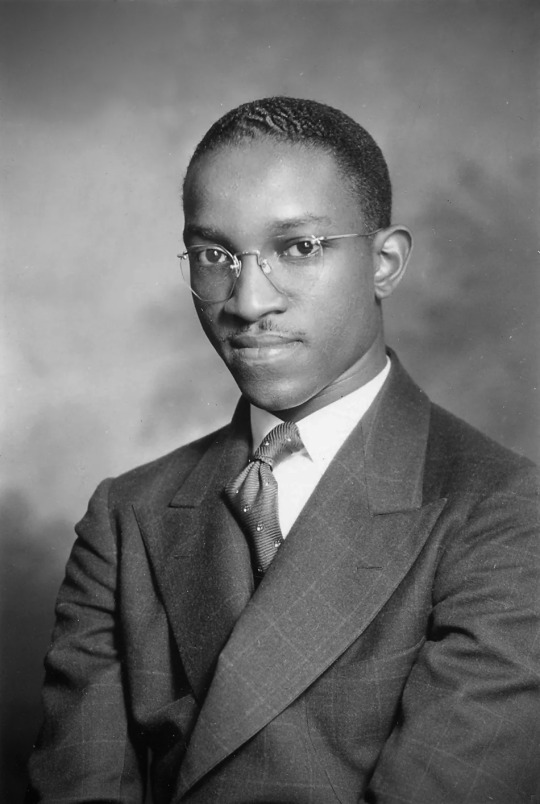
Today In History
John Hope Franklin, American historian and educator was born in Rentiesville, OK, on this date January 2, 1915.
Noted for his scholarly reappraisal of the American Civil War era and the importance of the black struggle in shaping modern American identity, John Hop Franklin helped fashion the legal brief that led to the historic Supreme Court decision outlawing public school segregation, Brown v. Board of Education of Topeka (1954).
Franklin has had a distinguished career as a historian and educator. He has served as professor at Fisk University, Saint Augustine's College (Raleigh, North Carolina), North Carolina Central University (Durham), and Howard University (Washington, D.C.). Subsequently, he chaired the Department of History at Brooklyn College and has been John Matthews Manly Distinguished Service Professor of History at the University of Chicago, James B. Duke Professor of History at Duke University, Fulbright Professor in Australia, and Pitt Professor of American History and Institutions at Cambridge University, England.
His many awards include the Jefferson Medal of the Council for Advancement and Support of Education (1984), the Clarence Holte Literary Prize (1985), the Jefferson Medal of the American Philosophical Society, the National Endowment for Humanities Charles Frankel Award in (1993), and the Presidential Medal of Freedom (1995).
CARTER™ Magazine carter-mag.com #wherehistoryandhiphopmeet #historyandhiphop365 #cartermagazine #carter #johnhopefranklin #blackhistorymonth #blackhistory #history
#carter magazine#historyandhiphop365#wherehistoryandhiphopmeet#history#carter#cartermagazine#today in history#staywoke#blackhistory#blackhistorymonth#John hope franklin
94 notes
·
View notes
Text
The Five Stages of Reading Albert Camus
1. The Discovery – ”The Stranger” (1942)
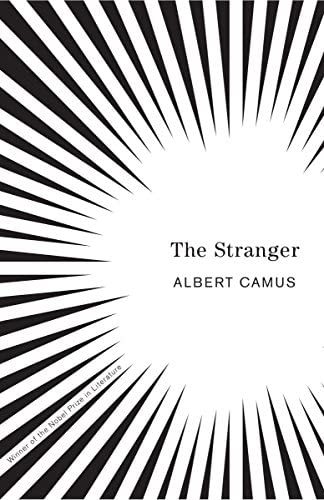
„The Stranger” is unquestionably the best choice for anyone who wants to get to know Albert Camus. It's so simple that it fools you at first. You think it's going to be an easy read, but when you finish the book and put it down, you don't even know your name or if it even matters to have a name. It will probably keep your mind busy for months and make you think about the true meaning of life. You will most likely never be the same person again.
2. Falling in Love – ”Betwixt and Between” (1937) // ”The Fall” (1956) // ”Exile and the Kingdom” (1957)

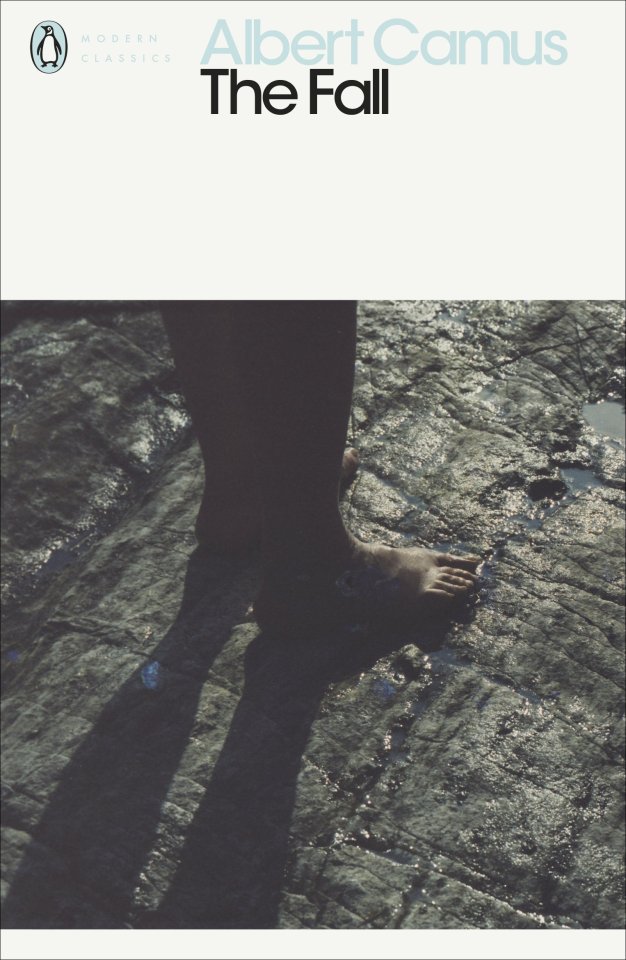
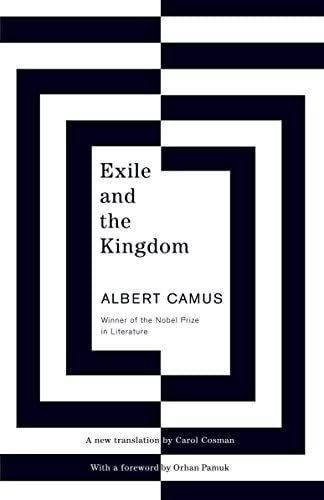
After "The Stranger" has had time to settle and stick in your mind (a process that takes about six months to a year), it's time to explore other writing. Camus doesn't use the same language in every book, so it's important to be careful what you choose to read after. The best options to fall irrevocably in love with this French philosopher are ”Betwixt and Between”, which is his very first published book, ”The Fall”, which offers a very interesting narrative perspective, or ”Exile and the Kingdom”, his only collection of short stories. After going through these, your heart will be caught in the nets of love for Camus.
3. The Surprise – ”The Plague” (1947) // ”A Happy Death” (written 1936–38, published 1971) // ”Summer” (1954) // ”Nuptials” (1938)

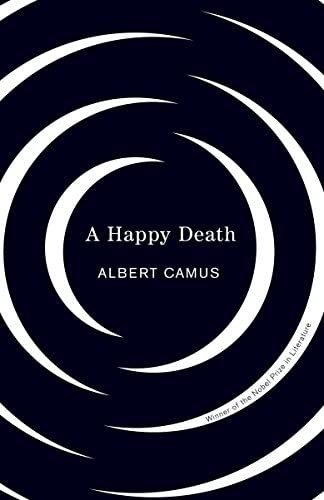

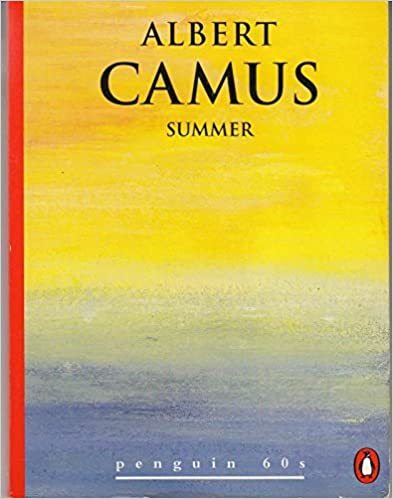
After the reader has gone through the above books, he will have the impression that he knows Camus. Now is the time for him to have the surprise of his life. Camus managed the feat of not giving the audience the same thing twice. That is why each of his writings is unique. Some are easier to read and digest, some are not. At this stage, it is time to get acquainted with its more difficult side. "The Plague" is a story that shakes you to the core and is difficult for even the best readers to get through. ”The Happy Death” should never have seen the light of day, being the first version of what we now know as The Stranger. "Summer" and "Nuptials" are dubbed essays and are similar in format to ”Betwixt and Between”, but here Camus approaches a completely new language, so poetic and refined that it instantly wins you over. Only after the reader goes through these books can he say that he understands a part of Camus.
4. Not just a writer – ”The Myth of Sisyphus” (1942) // „The Rebel” (1951) // Theatre Plays // Journalism Articles
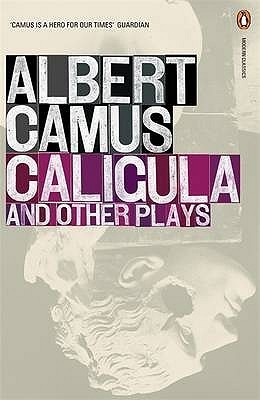

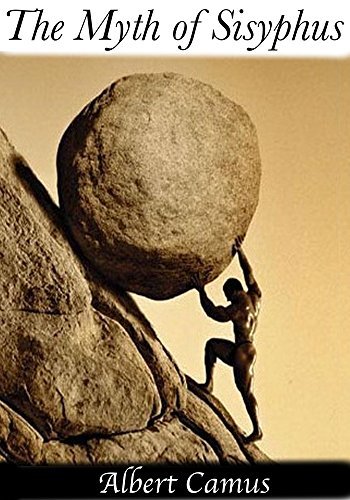
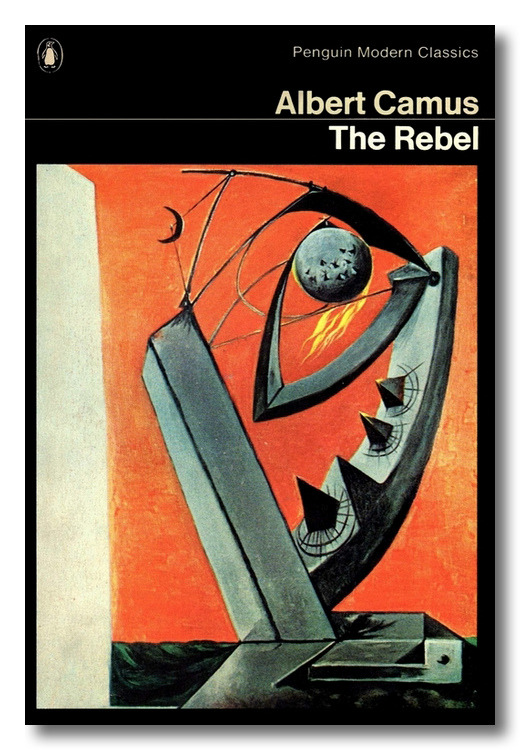
Camus was not only a great French writer. He was also a philosopher (though he never called himself that), a journalist and a playwright. If you are interested in fully understanding Camus, you must also understand his writings in other fields. "The Myth of Sisyphus" is the essay that formed the basis of the formation of a new philosophical current called absurdism. "The Rebel" continues the work started by "The Myth of Sisyphus", going much deeper into the issues related to the meaning of life, art, war, etc. Plays like "Caligula" (1938) or "The Misunderstanding" (1944) are wonderful pieces of art in the history of the theater, while summing up the entire philosophy of Camus. His journalistic articles reveal a Camus involved in society, trying to change something in one way or another through writing. "Reflections on the Guillotine" (1957) for example was an important work that contributed to the abolition of the death penalty in France. Camus never confined his writing to a single specialization, and this can be seen in the skill with which he explored the power of the word in its various forms.
5. Camus the Human – ”The First Man” (incomplete, published 1994) // ”American Journals” (1978) // ”Correspondence (1944–1959)” // ”Notebooks”
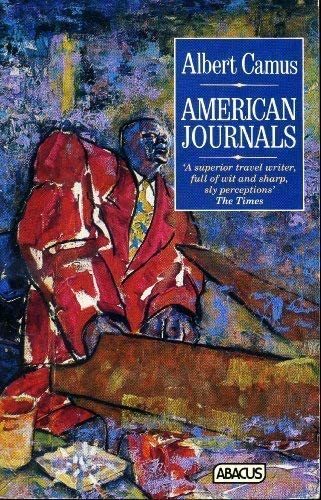
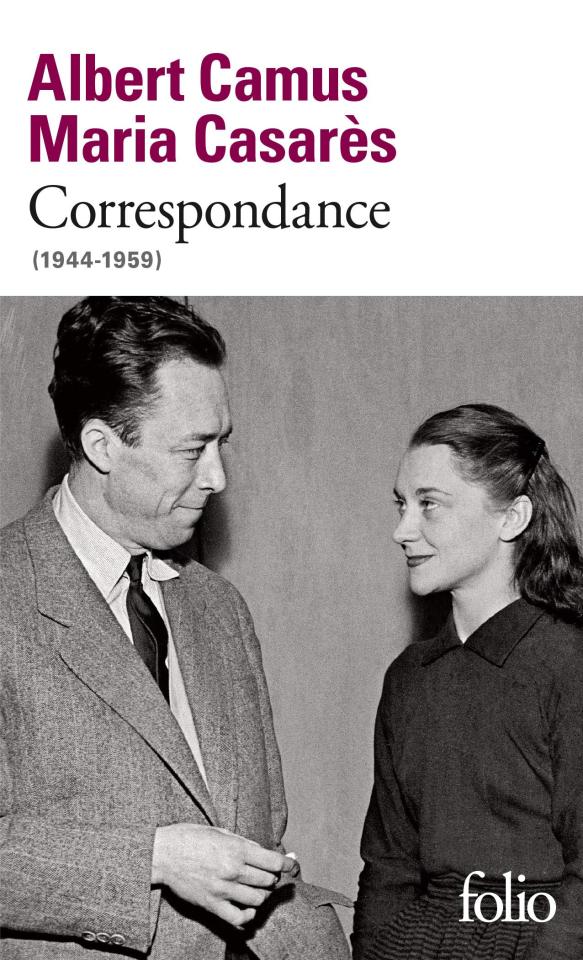
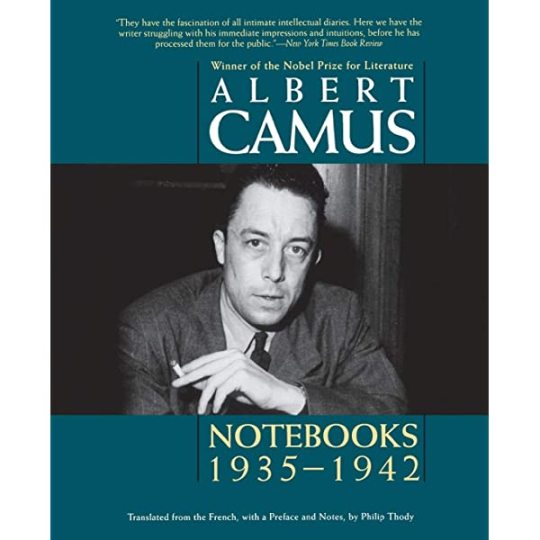

At this point, after going through all these readings, we also want to find out who was the man behind the word. Camus put many things from his personal life into writing, but in this selection we have the most personal point of view. ”The First Man” was supposed to be an autobiographical novel, but Camus died before he could finish it. The remaining manuscript was revised and published years after the author's death. "American Journals" captures a highly sensitive moment in his life, an existential crisis in Camus's life. ”Correspondence” is an exchange of letters between Camus and the woman with probably the greatest influence in his life, Maria Casares. Finally, the "Notebooks" are a collection made from the notes that Camus wrote over the years in his countless notebooks. Every intimate thought, beginning of a novel, reflection, trace of feeling, all these complete the image of Camus as a man.

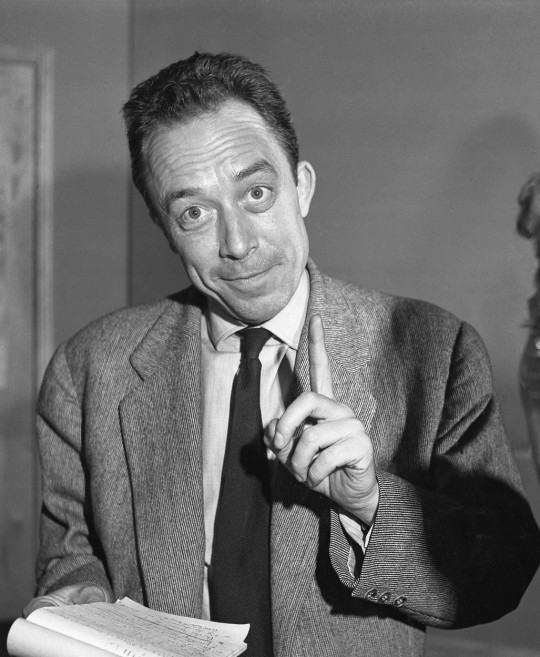
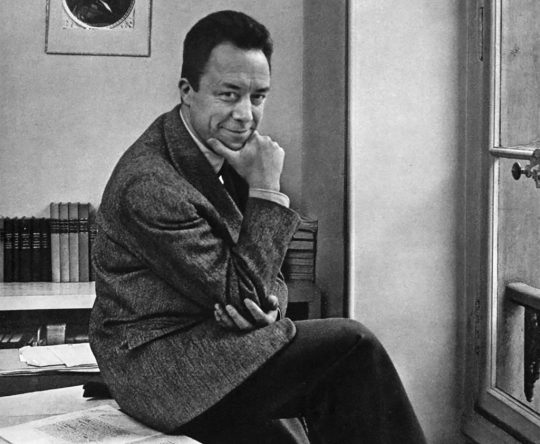
Congratulations! If you have reached this point, you have managed to go through all the stages of knowledge and you can call yourself a true fan of Albert Camus. Now go and spread his teachings to other little outstiders. And don't forget, the only purpose of life is to be happy (reading Camus together).
#albert camus#camus#camus quotes#classic literature#literature#french literature#albert#the stranger#the plague#the fall#exile and the kingdom#20th century#20th century literature#classic authors#a happy death#the first man#betwixt and between#nuptials#summer#the myth of sisyphus#the rebel#philosophy#philosopher#20th century philosophy#absurdism#absurd#existentialism#the theory of the absurd#notebooks#american journals
347 notes
·
View notes
Text
canto V speculation/spoilers, featuring discussion of moby dick and lots of guessing.
a note that with my predictions, i am just spitballing here.
still fascinated with the fact that queequeg is a former member of the middle. i would assume she was one of the more skilled members as well, even if only just to play off her original counterpart's position as nobility in his tribe. lest we forget his strong proficiency in harpooning. i wonder if we will have ishmael reference queequeg in being instrumental to her skills with a harpoon?
given ishmael mentioning in the blubbering toad's logs having someone long ago comfort her while crying over something, i have to wonder if this was queequeg, and if queequeg ended up being a mentor to her. the way the members of the middle are referred to as either "big brother" or "big sister" makes me think of a shield/protector sort of role being advertised by them, even if it ends up being a farce. perhaps queequeg had some disillusionment with the operations of the middle? a contrast between the middle's (probable) brutality and queequeg's (if we go by the source) kind-hearted nature?
i think often on source queequeg's sentiment that his exposure to the white christian world have become a taint in his soul, and that he feels unworthy of returning to his home. the world of the city being, for better and definitely for worse "aracial" makes much of the relevance and themes of moby dick a little tricky to translate, imo. for those who might not have read moby dick, my favorite thing to say about it is: "the whale is white for a reason."
schools in the united states often teach that the lesson about race to take away from moby dick are simply not to judge another person by the color of their skin, but that is a vast oversimplification. moby dick was released pre-civil war and asserted that the very concept of whiteness is an inherent evil. it condemned slavery, argued against the merits of the very-popular-at-the-time "scientific" school of phrenology. most importantly, it suggests that the glorification of whiteness as a designation of purity and the reason to guide the "lesser non-white races" is the source of all of christianity's evils. with this in mind, i'd like to bring up that sometimes people nowadays make a show of "wow, moby dick was a commercial failure, but now it's considered one of the greatest american books ever written. thank goodness we discovered it." what actually happened is that moby dick was critically panned in virtually all liberal (in the classical/socialist sense) media circles, but celebrated in socialist ones. you can probably guess why.
perhaps that gives context to my skepticism of how queequeg will be handled in a thematic sense. some people point to queequeg in moby dick as a progenitor of the harmful "noble savage" trope, and i don't think that's entirely without basis. but the difference between moby dick and many other media with "noble savages" is that queequeg was created as a philosophical counter to the very notion of white (and christian) supremacy, whereas the majority examples use this to show the virtues of white society. there is also the fact that queequeg and his fictional home were based on actual indigenous polynesians whom the author, herman melville, actually lived with for several years and maintained strong friendships with. i personally believe that matters.
so how will project moon translate that to queequeg? i don't really know. perhaps her home was a smaller syndicate in the backstreets. maybe she's even an outsider, especially given that ishmael has spent a lot of time exploring the outskirts. ishmael seems to be a blend of the character and a biographical account of herman melville's well-recorded life and philosophical quandaries. i am definitely curious and trying to be optimistic.
there's also the presence of tanya, who was obsessed with strength and survival of the fittest to the point of distortion. maybe she will end up being retroactively made a foil to queequeg? human!tanya in a flashback, maybe? i think she can be a very interesting point to develop PJM's take on queequeg, since queequeg abandoned the middle entirely.
so yeah. needless to say. i have been Pondering. there's a lot left to discover and understand, and i'm excited to see where they take it.
72 notes
·
View notes
Text
Dark Academia is a subculture and it isn't problematic, just misunderstood.
I am so tired of people that aren't a part of this community shitting on dark academia literally any time it gains popularity again, claiming that it's pretentious, elitist and racist. It's not problematic, at least not in a way most people criticise it for.
What all of those people don't seems to understand is that there's the dark academia aesthetic and there is the dark academia the subculture. Even when they do understand they still put people who are only interested in the fashion and overall vibe together with people who are dark academia.
Why is dark academia a subculture?
First let's start with what even subculture is?
It's a cultural group within a larger culture, often sharing a collection of values, beliefs, rituals and traditions. Despite what many believes, it doesn't have to have any connection to music, like Star Trek and Star Wars fans, but there's no need for having a shared fandom at all, like the gays, bikers and youth.
Participation in the dark academia subculture is not limited to following a specific set of fashion. It suggest preferred activities, hobbies, philosophies and lifestyles. The focus is on reading and expanding one’s horizons, on becaming the best version of oneself no matter the cost, especially by engaging in classical literature, history, foreign languages, mythology, art and philosophy. On top of that DA is actually connected to certain music (classical and neoclassical) and fandoms.
The (incorrect) criticisms:
1. One of the more common criticisms of dark academia is that of its superficiality and pretentiousness – that it is more a fetishisation of intellectual life than real intellectual life. "Instead of being a reading society, it's a Dead Poets Society cosplay." This is just simply untrue. Yes, there are people who are purely here for the aesthetic and vibes, but they aren't part of the subculture. People who are genuinely part of this community do read all those books, write poetry, journal e.t.c regularly and try to be well educated.
2. The money issue. Now this is where it gets funny. Dark academia is often called classist and racist because of it's "idealised vision of the academic lifestyle in which the money is simply there". Obviously in places where higher education is strictly financially driven studying is a bitch. Nowadays there are even a lot of doctors who are homeless, especially in US. But DA is mainly a European thing, and in a lot of EU countries studying isn't that expensive, it's not cheap either (books costs a lot and not working doesn't help), but you don't need to pay for a good education, you need to study hard and compete with others to get good education.
This however is not a dark academia problem. It's a harsh reality. One that we need to fight with. Getting higher education shouldn't make you get into a debt. It shouldn't make you sacrifice social life for studying all your life only to end on the streets.
3. "Eurocentric obsession". This is so dumb I don't even know to say. How can you possibly call people, mostly from Europe, problematic for being fascinated by Europe's history, it's past culture, Greek mythology, mostly European philosophers (but American too), Latin that is still fucking taught at many schools here, etc. All of things are taught in schools here. There is nothing wrong with you being obsessed with Asian royalty and making it part of your personality, but God forbid, you, a white person, are obsessed with the best parts of your history and culture 🙄.
4. Another criticism of dark academia is that it encourages unhealthy behaviour, both physically (caffeine overconsumption, smoking, drugs) and mentally (perfectionist, constant competition). The pursuit of perfection comes at a price. The entire idea of DA is to study as hard as possible so you can reach enlighten. It's workaholism, except it's school, not work. Now this is why I think dark academia isn't problematic in a way people think, but is misunderstood.
A melancholic comforting dream
It's easy to understand why people think DA is unhealthy or fake. Nights spent studying, writing essays for hours on end, drowning in books and writing excessive notes. For many this sounds like a nightmare, but dark academia romanticise it. It see it as the true joy of university life. At the same time there's taking joy in reflecting on what is irretrievably lost, pessimistic and melancholic.
In reality most people in this community are overworked neurodivergent, usually twice exceptional, youth who struggles mentally. So many people are twice exceptional and it's very obvious. The hyperfixetions, the love for linguistics and humanities, the hate of math.
For many Dark Academia is a coping method.
Staples of dark academia fiction explore intellectualism, classic literature and self-discovery, but also the struggle of fighting for your identity, the way humans are shaped by their trauma, the way they destroy themselves to be better. The word "dark" in Dark Academia is primarily about those dark sides of the human nature, not just the dark colours of the DA aesthetic.
If you think that Dead Poets Society romanticised suicide or Kill Your Darlings academicly motivated drug use then you're the crazy one here. People loved those movies, because of how relatable they were, even the suffering.
Studying is a bitch. If you make it fun then you are less depressed about the fact that you don't have the choice to not study all night. It's not just nostalgia for what you haven't experienced, but what you have to endure all your youth. Some people are forced to study to be the very best and sacrifice their (social) lives, because the system is so broken, but if you can make it into your own, comforting, time - it's better. Sure, the movies and books have lots of harmful copying mechanism, but irl (or in this case online) this community encourages healthy methods like reading, making art, journaling, acting etc.
I do think there's a lot of to talk about when it comes to, for example, sexism, and I do agree DA needs more diversity than just white cis man, but like I said, it's not problematic in a way most people criticise it for.
#dark aesthetic#dark academia#dark acadamia aesthetic#dark academism#subculture#dark academia subculture#mental health#relatable#autism#adhd problems#problematic#coping mechanism#light academia#chaotic academia#dead poets society#kill your darlings#neurodivergent#intellectualism
33 notes
·
View notes
Text
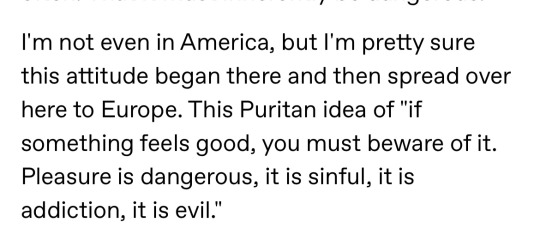
Europeans will rag on Americans for being stupid and ignorant of the world and then immediately say shit revealing their ignorance not just of the world but of their own goddamn history
Like hey bestie I have amazing news about where the Puritans and their ideas originated. In fact this anti-pleasure mindset you’re criticizing didn’t start with the Puritans or even the Catholics, you see this idea in European religious and philosophical traditions going back to ancient Greece and Rome. Probably even further back.
Europeans will act as if the US is uniquely terrible and as if everything wrong with modern society originated here, as if we were not a country founded by European settlers and slavers. As if our laws aren’t largely based on English (and in one specific case French) law. As if the US and the nations of Europe haven’t had 250+ years of collaboration on all the ugliest ideas and philosophies that shaped our history.
31 notes
·
View notes
Text
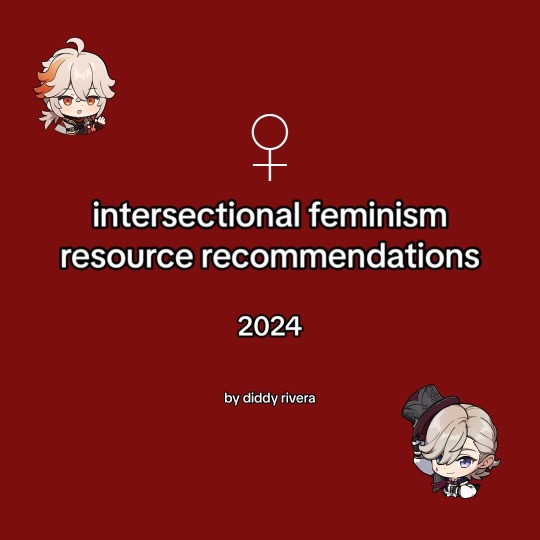
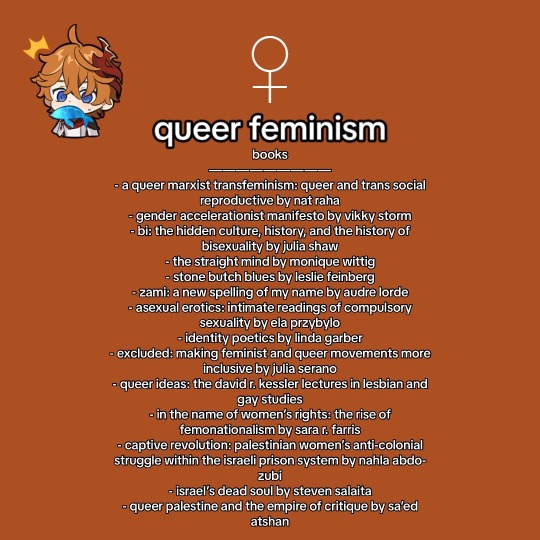
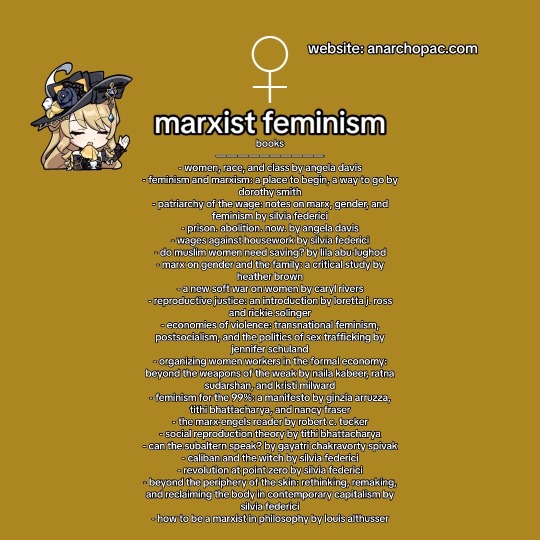
additional resources to marxist feminism:
living a feminist life by sara ahmed
the rise and decline of patriarchal systems by nancy folbre
this bridge called my back: writings by radical women of color by cherrie moraga and gloria anzaldua
delusions of gender: how our minds, society, and neurosexism create difference by cordelia fine
close to home: a materialist analysis to women's oppression by christine delphy
(pdf) the feminist standpoint: developing the ground for a specifically feminist historical materialism
(medium) on women as a class: materialist feminism and mass struggle by aly e
(sagejournals) capital and class: the unhappy moments of marxism and feminism: towards a more progressive union
(substack) the marxfem pulpit by abigail von maure (earth2abbs on tiktok)
if anything else related to marxist feminism, just let me know :)
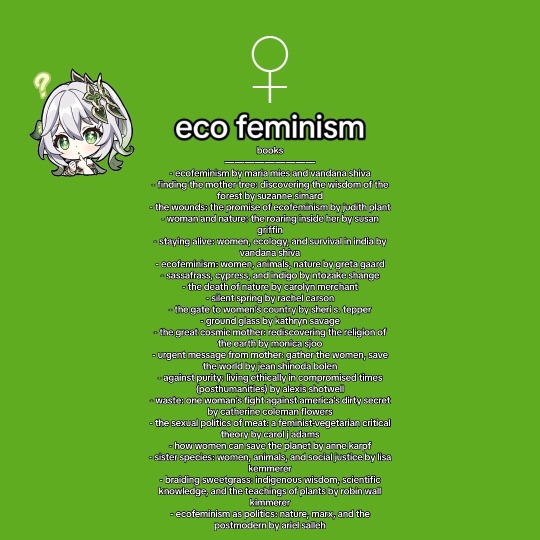
additional resources to eco feminism:
gossips, gorgons, and crones: the fates of the earth by jane caputi
parable of the sower by octavia e butler
neither man nor beast: feminism and the defense of animals by carol j. adams
bitch: on the female of species by lucy cooke
fresh banana leaves: healing indigenous landscapes through indigenous science by jessica hernandez
the intersectional environmentalist by leah thomas
right here, right now by natalie isaacs
feminism or death by francoise d'ealibonne
violent inheritance: sexuality, land, and energy in making the north american west by e cram
animal crisis: a new critical theory by alice grary
unsettling: surviving extinction together by elizabeth weinberg
land of women by maria sanchez
sexus animalis: there is nothing unnatural in nature by emmanuelle pouydebat
windswept: walking the paths of trailblazing women by annabel abbs
andrea smith - rape of the land
andy smith - ecofeminism through an anticolonial framework
carolyn marchant - nature as female
charlene spretnak - critical and constructive contributions of ecofeminism
heather eaton - ecological feminist theology
heather Eaton - The Edge of the Seat
janet abromovitz - biodiversity and gender Issues
joni Seager - creating a culture of destruction
karen warren - ecofeminism
karen warren - taking empirical data seriously
karen warren - the power and promise of ecological feminism
l. gruen - dismantling oppression
martha e. gimenez - does ecology need marx?
n. sturgeon - the nature of race
petra kelly - women and power
quinby - ecofeminism and the politics of resistance
rosemary radford ruether - ecofeminism: symbolic and social connections
sherry ortner - is female to male as nature is to culture?
sturgeon - the nature of race
val plumwood - feminism and ecofeminism
winona laduke - a society based on conquest cannot be sustained
if anyone has any other recommendations related to eco feminism, plz let me know :)
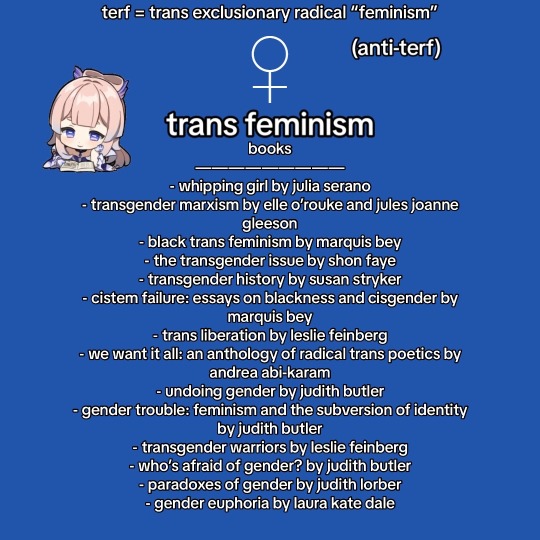
additional resources related to trans feminism:
the empire strikes back: a posttransexual manifesto by sandy stone
(chicago journals) trapped in the wrong theory: rethinking trans oppression and resistance by talia mae bettcher
(philpapers.org) trans women and the meaning of woman by talia mae bettcher
the transgender studies reader by susan stryker and stephen whittle
if anyone has other recommendations related to trans feminism, plz let me know :)
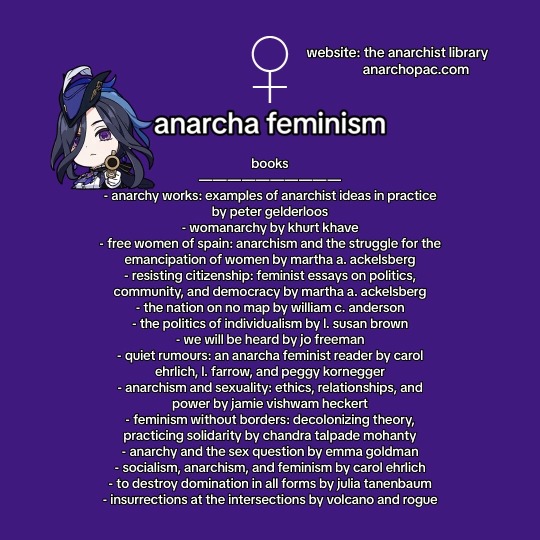
additional resources related to anarcha feminism:
the anarchist turn by jacob blumenfeld
we will not cancel us and other dreams of transformative justice by adrienne maree brown
burn it down: feminist manifestos for the revolution by breanne fahs
reinventing anarchy, again by howard ehrlich
anarcho-blackness by marquis bey
a little philosophical lexicon of anarchism from proudhon to deleuze by daniel colson and jesse cohn
joyful militancy by nick montgomery and carla bergman
wayward lives, beautiful experiments by saidiya v. hartman
we won't be here tomorrow and other stories by margaret killjoy
writing revolution by christopher j. castaneda
paradoxes of utopia by juan suriano
twelve fingers by jo soares
for a just and better world by sonia hernandez
if anyone has other recommendations related to anarcha feminism, plz let me know :)
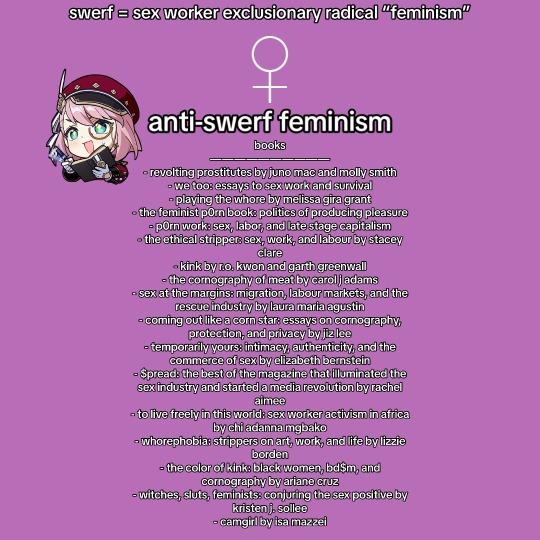
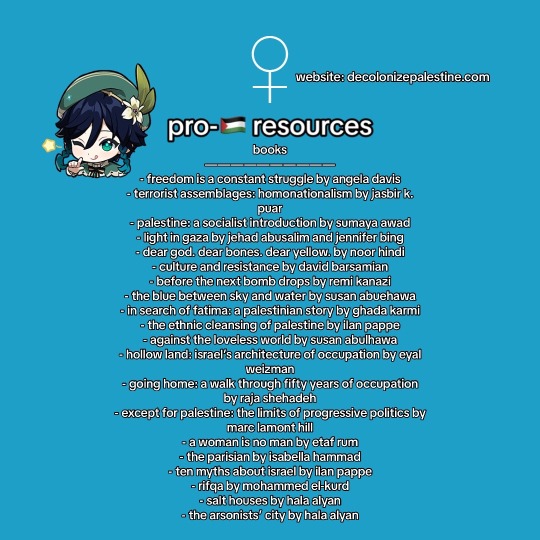
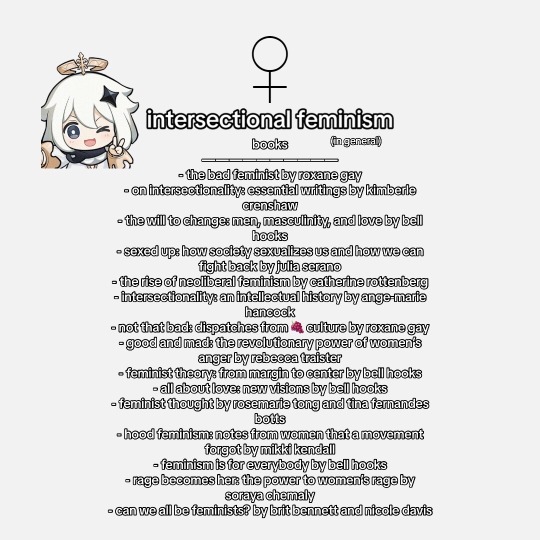
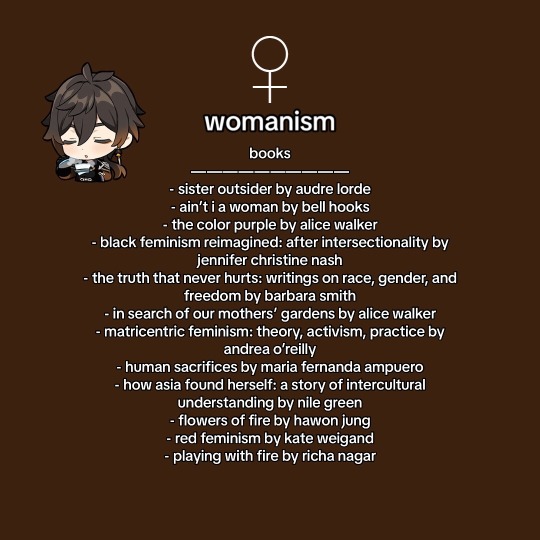

#feminism#intersectionalfeminist#intersectionality#anti terf#anti swerf#womens rights#marxist feminism#eco feminism#anarcha feminism#trans feminism#queer feminism#pro lgbtq+#pro disabled#pro trans#pro palestine#pro sex worker
36 notes
·
View notes
Text
Anthropologists and philosophers have asked whether agriculture could have been the tipping point in the power balance between men and women. Agriculture needs a lot of physical strength. The dawn of farming was also when humans started to keep property such as cattle. As this theory goes, social elites emerged as some people built up more property than others, driving men to want to make sure their wealth would pass onto their legitimate children. So, they began to restrict women’s sexual freedom.
The problem with this is that women have always done agricultural work. In ancient Greek and Roman literature, for example, there are depictions of women reaping corn and stories of young women working as shepherds. United Nations data shows that, even today, women comprise almost half the world’s agricultural workforce and are nearly half of the world’s small-scale livestock managers in low-income countries. Working-class women and enslaved women across the world have always done heavy manual labour.
More importantly for the story of patriarchy, there was plant and animal domestication for a long time before the historical record shows obvious evidence of oppression based on gender. “The old idea that as soon as you get farming, you get property, and therefore you get control of women as property,” explains Hodder, “is wrong, clearly wrong.” The timelines don’t match up.
The first clear signs of women being treated categorically differently from men appear much later, in the first states in ancient Mesopotamia, the historical region around the Tigris and Euphrates rivers in what is now Iraq, Syria and Turkey. Around 5,000 years ago, administrative tablets from the Sumerian city of Uruk in southern Mesopotamia show those in charge taking great pains to draw up detailed lists of population and resources.
“Person power is the key to power in general,” explains political scientist and anthropologist James Scott at Yale University, whose research has focused on early agrarian states. The elites in these early societies needed people to be available to produce a surplus of resources for them, and to be available to defend the state—even to give up their lives, if needed, in times of war. Maintaining population levels put an inevitable pressure on families. Over time, young women were expected to focus on having more and more babies, especially sons who would grow up to fight.
The most important thing for the state was that everybody played their part according to how they had been categorised: male or female. Individual talents, needs, or desires didn’t matter. A young man who didn’t want to go to war might be mocked as a failure; a young woman who didn’t want to have children or wasn’t motherly could be condemned as unnatural.
As documented by the American historian Gerda Lerner, written records from that time show women gradually disappearing from the public world of work and leadership, and being pushed into the domestic shadows to focus on motherhood and domestic labour. This combined with the practice of patrilocal marriage, in which daughters are expected to leave their childhood homes to live with their husbands’ families, marginalised women and made them vulnerable to exploitation and abuse in their own homes. Over time, marriage turned into a rigid legal institution that treated women as property of their husbands, as were children and slaves.
Rather than beginning in the family, then, history points instead to patriarchy beginning with those in power in the first states. Demands from the top filtered down into the family, forcing ruptures in the most basic human relationships, even those between parents and their children. It sowed distrust between those whom people might otherwise turn to for love and support. No longer were people living for themselves and those closest to them. Now, they were living in the interests of the patriarchal state.
This is interesting.
#repost of someone else’s content#article#patriarchy#adultism#statism#feminism#anarchist#anarcha-feminist#history#historiography#anthropology
36 notes
·
View notes